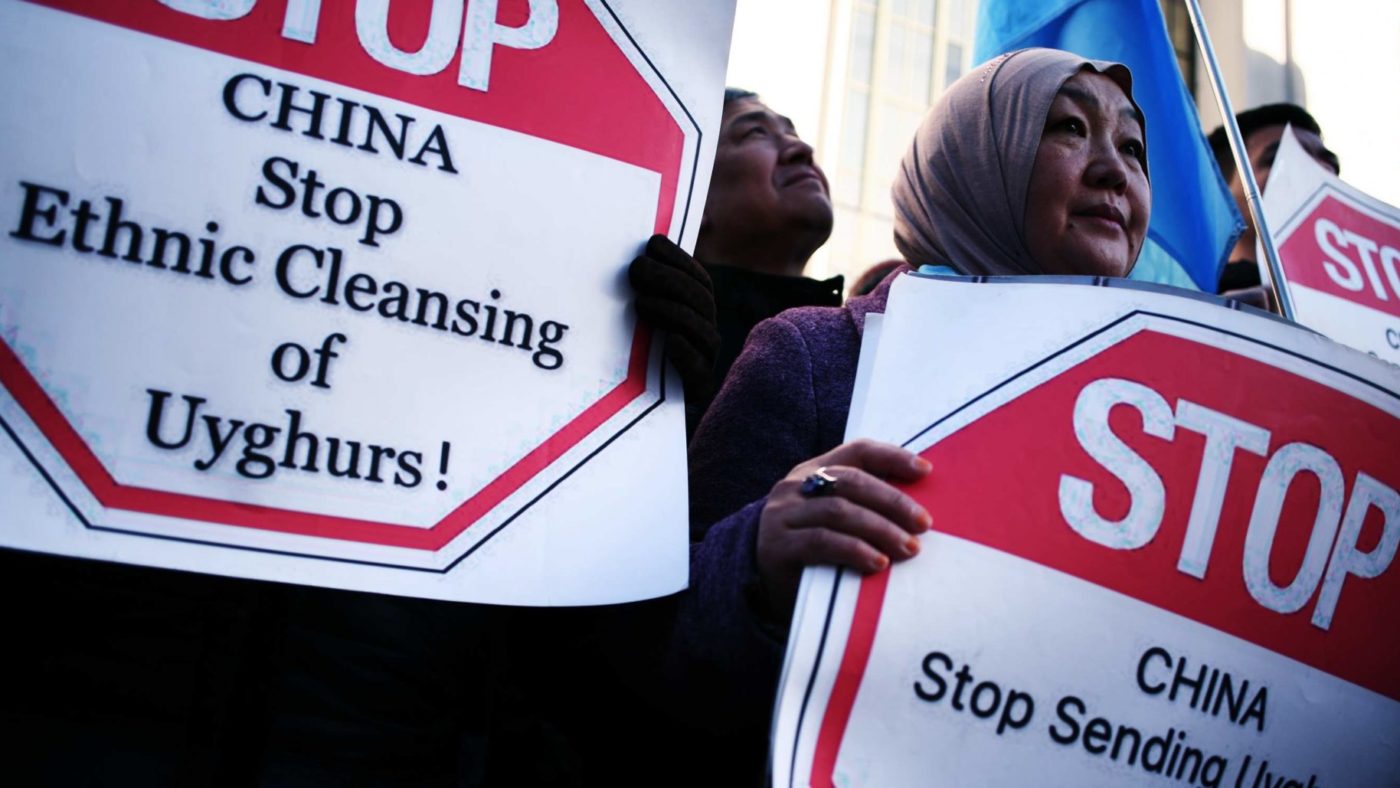When Andrew Marr showed Chinese ambassador Liu Xiaoming verified footage of handcuffed, blindfolded Uighurs being led onto trains, there was a long, chilling but electrifying silence from the ambassador. He had no answer.
And when the BBC played a Newsnight interview with Uighur woman Zumret Dawut describing her experience of forced sterilisation, Liu initially refused to even view the testimony, dismissing it as the work of “anti-China” elements.
To his credit, Marr politely persisted, dismissing Liu’s interruption by saying “let’s just listen to this for a second”. Viewers heard Dawut describe “women crying in pain…the pain was so excruciating”. They then heard Liu dismiss the allegation of a forced sterilisation policy, though adding: “I cannot rule out single cases [as in] any country”. Forced sterilisation, in single cases or on a mass-scale, does not just happen “in any country”, Ambassador Liu.
Foreign Secretary Dominic Raab’s reaction on the same programme was – at least rhetorically – commendably strong. “It is clear that gross, egregious human rights abuses are going on,” he said. “It is deeply, deeply troubling and the reports on the human aspect of this – from forced sterilisation to the education camps – are reminiscent of something we have not seen for a very long time … We can’t see behaviour like that and not call it out”.
The question now for Mr Raab is: what are you going to do about it?
There are two immediate steps the Government should take. The first is to determine what level of international human rights crimes are being committed. The second is to apply the newly established Magnitsky sanctions.
In regard to the first, Mr Raab was understandably careful about using the term “genocide”, which has a specific definition and which should never be bandied about thoughtlessly. But at the same time, the 1948 Genocide Convention has some clear definitions which include “imposing measures intended to prevent births” within a national, ethnic, racial or religious group, “forcibly transferring children of the group to another group”, “causing serious bodily or mental harm” to members of the group, “deliberately inflicting conditions of life calculated to bring about physical destruction in whole or in part” and, of course, killing members of the group.
From evidence that has been gathered in recent years by several experts – including researcher Adrian Zenz, the Australian Strategic Policy Institute, the Uighur Human Rights Project, Human Rights Watch and others – all five of these acts have been perpetrated against the Uighurs.
Of course, a key element of genocide is proof of intent. Does the Chinese regime intend to eliminate the Uighurs – in whole or in part? To answer that, just look at the regime’s own remarks. China’s state media has publicly declared that the goal in regard to the Uighurs is to “break their lineage, break their roots, break their connections and break their origins.” As the Washington Post put it in an editorial, “It’s hard to read that as anything other than a declaration of genocidal intent.” Leaked high-level Chinese government documents last year speak of “absolutely no mercy”.
For Mr Raab to describe China’s actions as “reminiscent of something we have not seen for a very long time” gives a clear indicator of the direction of his thinking.
So: why not initiate a genocide determination process? If this cannot be done – as it ideally should – through the United Nations, due to China’s influence, then there is nothing to stop the UK establishing its own process, alone or with like-minded allies. If politicians feel uncomfortable applying the term ‘genocide’ without a legal examination of the evidence, then why not establish an independent panel of legal minds to do so? If such a body concludes that the Uighurs are facing genocide, governments would have to act. But even if a judgment fell short of that determination, the evidence for mass atrocities – crimes against humanity – is overwhelming and demands a response.
That leads to the second measure that could be taken immediately. Mr Raab is to be commended for introducing the Magnitsky sanctions, a concept he backed from his early days as a backbencher and that he sees as a legacy issue. But if Magnitsky sanctions are not applied against the perpetrators of some of the 21st century’s worst human rights violations, what is the point? So as a start, Chen Quanguo, the Chinese Communist Party Secretary in Xinjiang and one of the primary architects of campaign against the Uighurs, should be top of the Magnitsky Sanctions list. Other officials in both Urumqi and Beijing should follow.
There are other steps that should also be taken. British companies doing business in China should undertake due diligence to ensure they are not using Uighur slave labour. Britain should reduce its strategic dependency on China and diversify its supply chains.
The recent decision to reverse the deal with Huawei – a company directly involved in the Orwellian surveillance state in Xinjiang – is a good start. But if Britain is serious about standing up for its values it must take two vital steps: initiate a genocide determination process and sanction the perpetrators of these egregious crimes – everything else is secondary.
Click here to subscribe to our daily briefing – the best pieces from CapX and across the web.
CapX depends on the generosity of its readers. If you value what we do, please consider making a donation.


